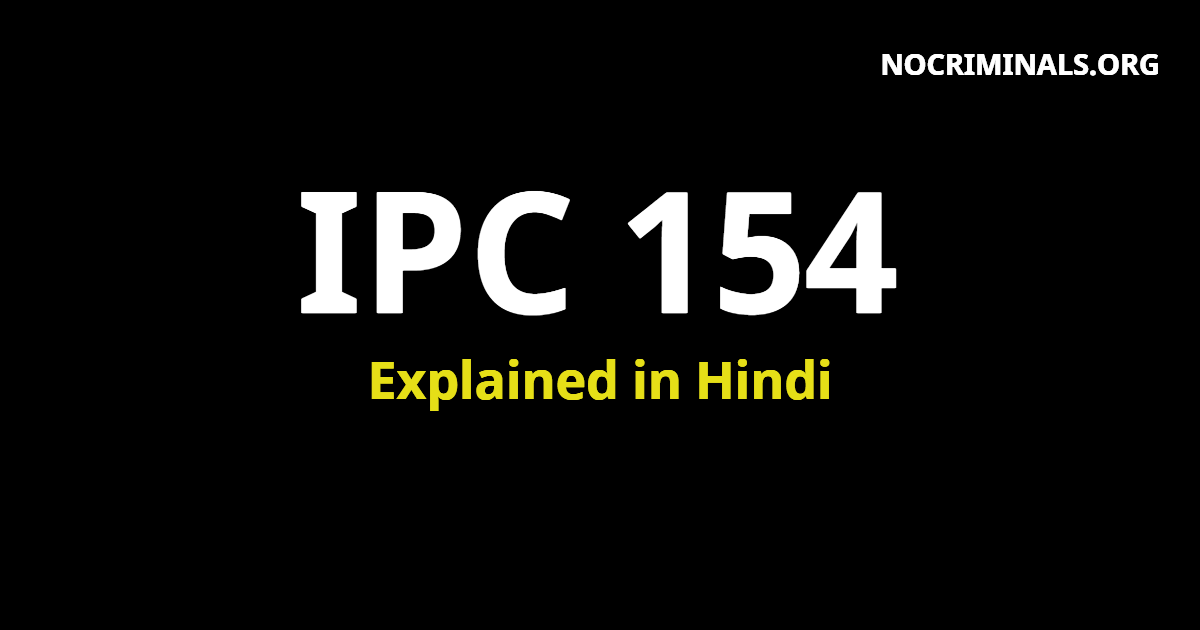
आईपीसी धारा 154 क्या है IPC Section 154 in Hindi विवरण सजा का प्रावधान, जमानत
Published on: 26 May, 2020. The procedure for recording of first information report i.e. FIR is given in section 154 CrPC. This section devises a process to lodge FIR in commission of cognisable offence. When the information discloses cognisable offence the officer in charge of the police station cannot refuse to record FIR.
🎉 Section 188 ipc. Can’t invoke Section 188 for not following Model Code, says court. 20190212
According to the IPC section 154, Owner or occupier of land on which an unlawful assembly is held Next. Read more at latestlaws.com. Monday, 08, Jan, 2024 .
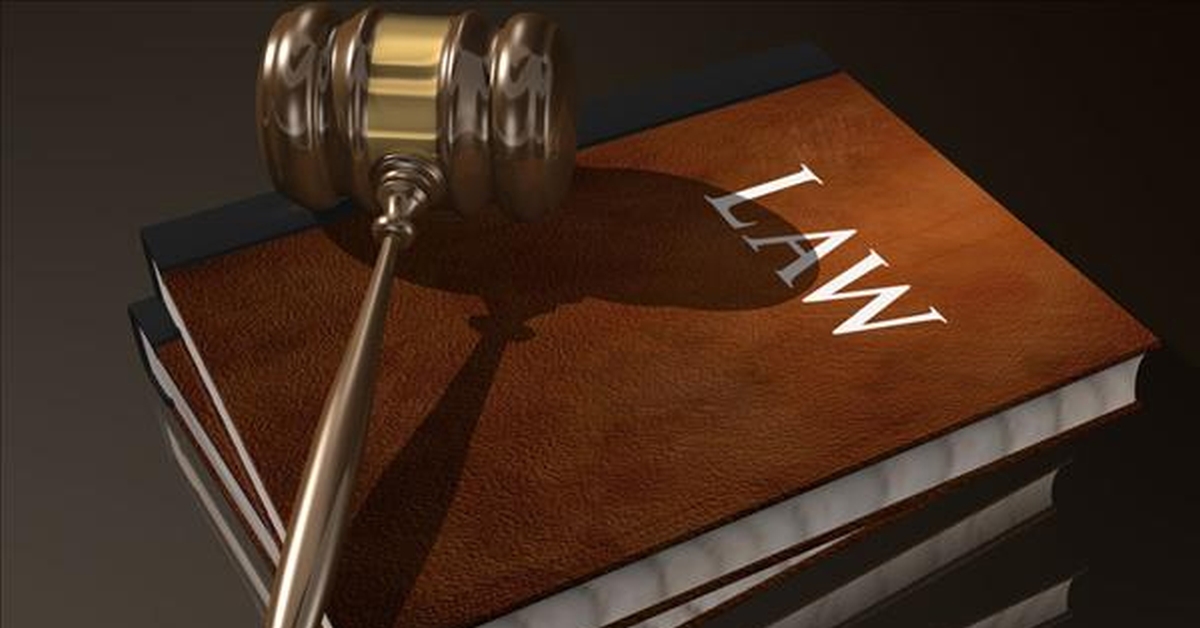
Section 302 of IPC An Exhaustive Guide and Explanation
THE INDIAN PENAL CODE _____ ARRANGEMENT OF SECTIONS _____ CHAPTER I INTRODUCTION PREAMBLE SECTIONS 1. Title and extent of operation of the Code.. 154. Owner or occupier of land on which an unlawful assembly is held.. Non-appearance in response to a proclamation under section 82 of Act 2 of 1974.

IPC Section 154 जिस स्थान पर जमा हो गैरकानूनी भीड़, उसी से जुड़ी है आईपीसी की ये धारा Indian
— Whenever any unlawful assembly or riot takes place, the owner or occupier of the land upon which such unlawful assembly is held, or such riot is committed, and any person having or claiming an interest in such land, shall be punishable with fine not exceeding one thousand rupees, if he or his agent or manager, knowing that such offence is bein.

154 ipc YouTube
According to Section 155 of the Criminal Procedure Code, 1973, if a police officer obtains information on the commission of a non-cognizable offence, he is required to record the case's details in the station diary and direct the informant to contact the relevant magistrate.

[PDF] List of IPC Sections in Hindi DCSD.IN
Owner or occupier of land on which an unlawful assembly is held.—Whenever any unlawful assembly or riot takes place, the owner or occupier of the land upon which such unlawful assembly is held, or such riot is committed, and any person having or claiming an interest in such land, shall be punishable with fine not exceeding one thousand rupees, i.

Section 154 CrPC read with Section 166A IPC YouTube
The term FIR is not defined in the Indian Penal Code (IPC), Code of Criminal Procedure (CrPC), 1973, or in any other law. However, in police regulations or rules, information recorded under Section 154 of CrPC is known as First Information Report (FIR). Features of FIR. Some major aspects of a First Information Report (FIR) are:
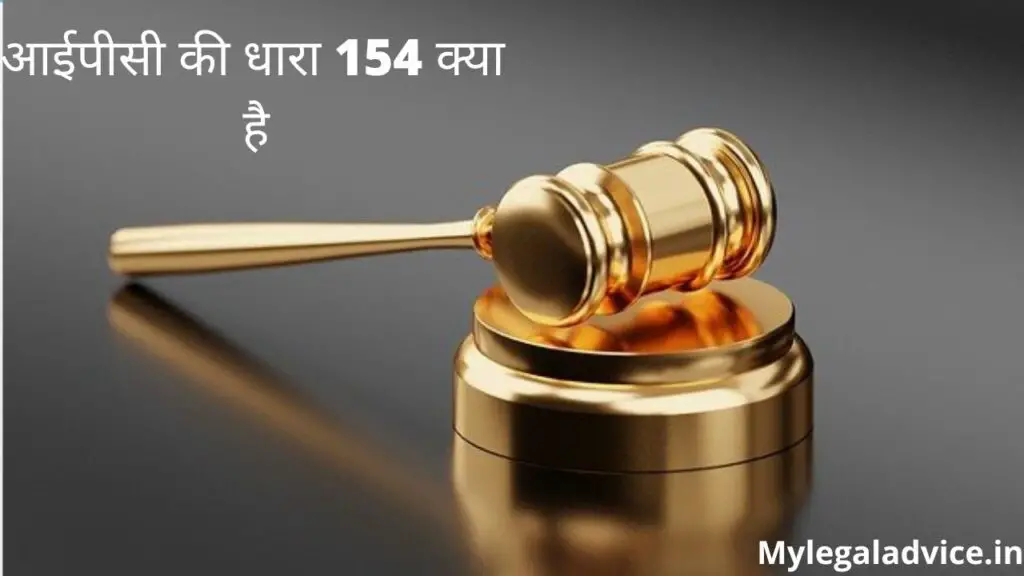
आईपीसी की धारा 154 क्या है SECTION 154 IPC IN HINDI पूरी जानकारी My Legal Advice
July 18, 2023 by Ragini Pathak The Indian Penal Code (IPC) is a comprehensive legislation that defines various criminal offenses and prescribes punishments for them. Within the IPC, Section 154 holds significant importance as it deals with the registration of the First Information Report (FIR).

Section 306 IPC Abetment of suicide Century Law Firm
Section 154 of the code talks about when information is given as a cognizable offence. The information must be given by the informant to the officer in charge of a police station in writing or must be reduced into writing by the officer in charge of the police station.. Refusal to answer questions is punishable under Section 179 IPC and.
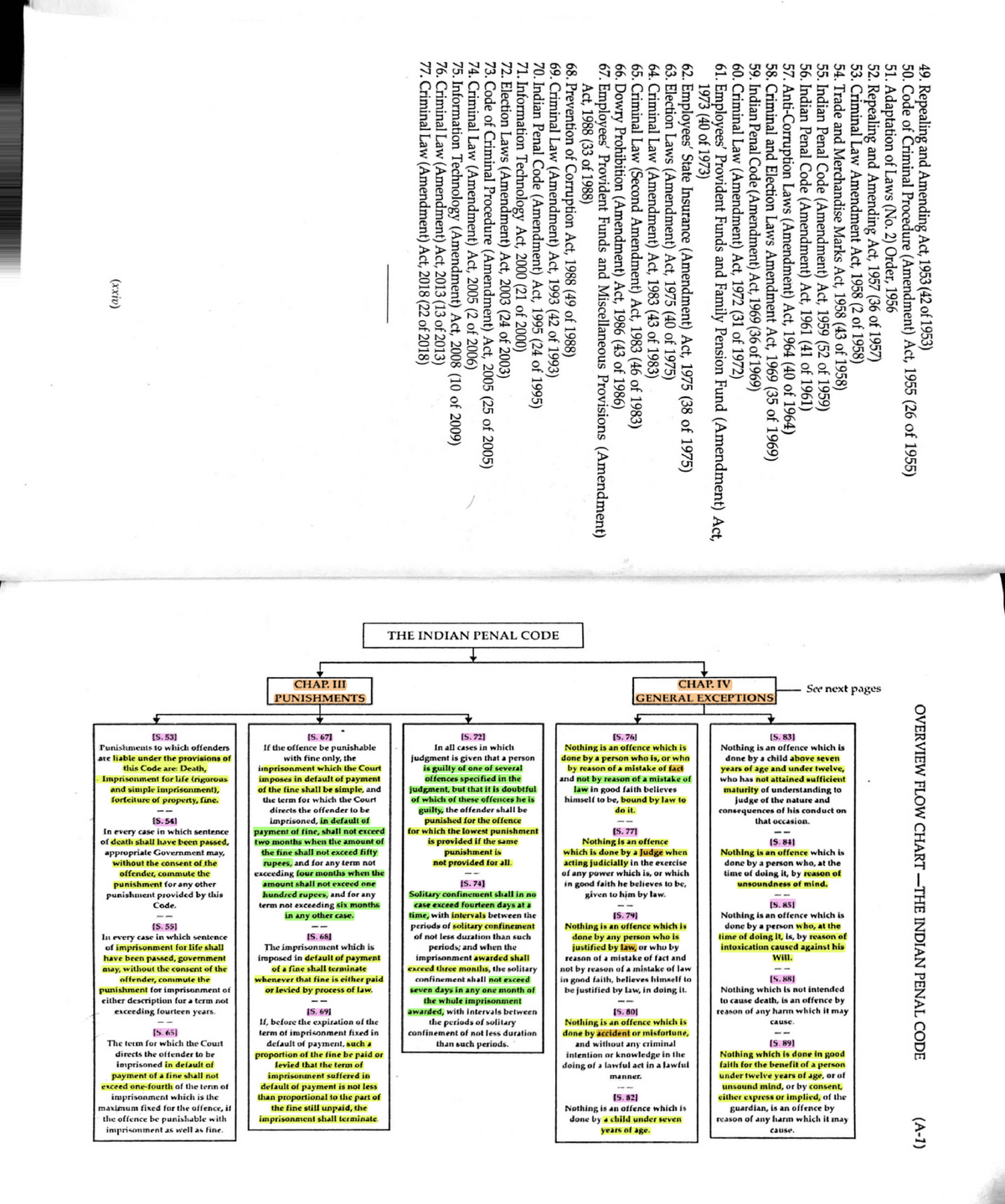
IPC Diagram IPC Chart I zyxwvutsrqponmlkjihgfedcbaZYXWVUTSRQPONMLKJIHGFEDCBA THE INDIAN
The accused has filed petition under Section 482 Cr.P.C. for quashing the FIR bearing No. 154 dated 02.09.2018 under section 354-D(2) IPC and Section 67 Information.the rights of any third party. I have no objection if the above said FIR bearing No. 154 dated 02.09.2018 under section 354-D(2) IPC and Section 67 Information Technology Act.

ipc section 154 IN HINDI dhara 154 kya hai 154 dhara kya hoti धारा 154 ipc 154 with
Section 154 IPC. 154. Owner or occupier of land on which an unlawful assembly is held. Whenever any unlawful assembly or riot takes place, the owner or occupier of the land upon which such unlawful assembly is held, or such riot is committed, and any person having or claiming an interest in such land, shall be punishable with fine not exceeding.
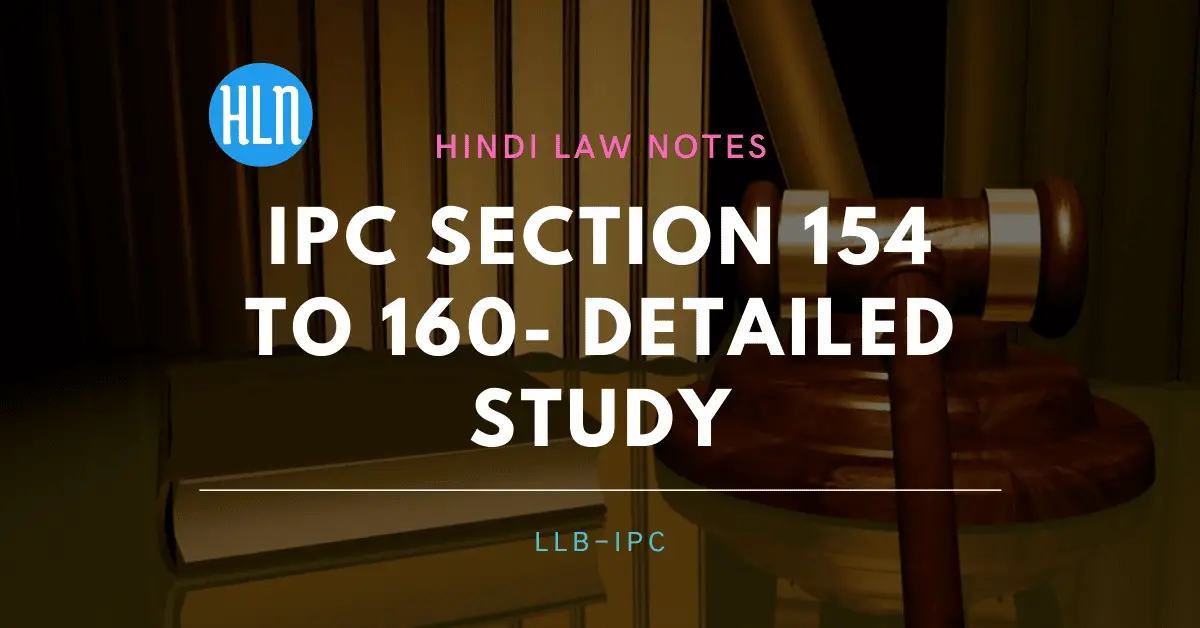
भारतीय दंड संहिता धारा 154 से 160 तक का विस्तृत अध्ययन Hindi Law Notes
The Conversation. Section 154 Indian Penal Code Section 154 of the Indian Penal Code 1860 is about Owner or occupier of land on which an unlawful assembly is held. It is under CHAPTER VIII (OF OFFENCES AGAINST THE PUBLIC TRANQUILLITY) of the Code. Owner or occupier of land on which an unlawful assembly is held Whenever any unlawful.

IPC Section 154 Owner Or Occupier Of Land On Which An Unlawful Assembly Is Held
IPC Chapter VIII; S. 154 Owner or occupier of land on which an unlawful assembly is held: Description; Whenever any unlawful assembly or riot takes place, the owner or occupier of the land upon which such unlawful assembly is held, or such riot is committed, and any person having or claiming an interest in such land, shall be punishable with fine not exceeding one thousand rupees, if he or his.

Section 506 of IPC Criminal Intimidation
Section 154 Crpc:- . 154. Information in cognizable cases. (1) Every information relating to the commission of a cognizable offence, if given orally to an officer in charge of a police station, shall be reduced to writing by him or under his direction, and be read Over to the informant; and every such information, whether given in writing or reduced to writing as aforesaid, shall be signed by.

Ipc Sections... Robbery
Section 154 of the Indian Penal Code states that whenever a riot or an unlawful assembly occurs the owner or the occupier of that land has to be punished with a fine of the amount which shall not exceed 1000 rupees.

IPC SECTION 154 in hindi.Indian Penal Code,1860 (LAW)151 160]dhara ipc sectionभारतीय दण्ड
The fundamental premise of Section 154 IPC is to hold the owner or occupier of a property accountable for their premises. In the eyes of the law, they are presumed to have control over the activities taking place on their land. Unlawful Assembly Criteria